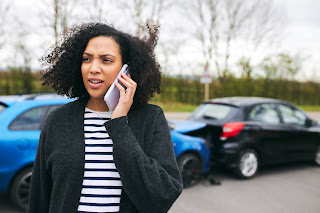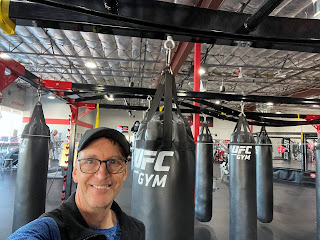What is collision coverage?
What is collision coverage?
Collision coverage helps pay for
the cost of repairs to your vehicle if it's hit by another vehicle. It may also
help with the cost of repairs if you hit another vehicle or object. That means
you can use it whether you're at fault or not. Unlike some coverages, you don't
select a limit for collision. The most it will pay is based on the actual cash
value of your vehicle. You will be responsible for paying your selected
deductible.
If you are driving and impact a
tree, pole, building, vehicle this type of accident is considered a collision,
and thus your collision deductible is important. The larger the deductible the
less expensive, however, if you rarely have that amount on hand, it may be
better to pay extra for a lower deductible. If an accident happens, you want to
be able to fix your vehicle as soon as possible. The best way for this to
happen if you can afford the deductible.
After you discuss your collision
with your independent insurance agent, the next step is to place a claim with
your insurance company. You should have your policy number, insurance company,
and toll-free telephone number to call. The first step is to have your claim
filed with the insurance company.
Next you will be assigned a claim adjuster
and be given a claim number. This information is valuable to you, because it
will allow you to communicate effectively with your insurance company in the
future. You may be wondering why your insurance agent doesn’t make the claim.
The simple answer is when a claim is filed the insurance company required the
information necessary to process a claim to be provided by the driving party, then
the name insured. Now our agency has been involved with the placing of the
claim via a conference call with the insurance company, named insured, and your
independent insurance agent.
The next step may be for the named
insured to be assigned a claims number and claims adjuster.
If it’s a non-medical collision,
the insurance company, will normally offer that you use one of their certified
body shops. This is usually a good idea, because of stronger warranties, and a
more efficient claims service. But if you don’t feel comfortable with the
insurance companies certified body shops, you can choose your own. Hopefully
the insurance company will approve your choice and the claims process will
begin.
Once your vehicle is at the body
shop, and the name insured has given them the authority to fix your vehicle.
The body shop will give you a cost estimate, and your responsibility will be
the collision deductible you agreed on when your automobile insurance policy was
put in force. Many body shops will offer you options, IF the deductible is not
affordable. Again, as mentioned above, we recommend you choose a deductible you
can afford to pay if you must place a claim.
If you will need a rental vehicle when
you have a claim, we recommend you choose rental vehicle coverage on your
policy. This simplifies the process, and if you have this coverage, you should
be able to obtain a rental vehicle the day you drop off your vehicle at the
body shop.
If your vehicle is not drivable,
you should be able to obtain a rental vehicle, shortly after you place your
claim. Another reason to consider choosing the rental vehicle coverage option,
when you initiate your automobile insurance policy.
Once your vehicle has been repaired,
it is important that the name insured thoroughly inspects their vehicle. One
reason is you still have the rental vehicle, and if it goes back in the shop this
will save you time.
Going through the claim process may
feel daunting the first time. However, the reality is this is exactly why you purchased
automobile insurance originally.
You may be thinking that the state
of Nevada requires you to purchase insurance to legally register your vehicle. Which
is true. But the DMV (department of motor vehicles) requirements are financial
responsibility requirements do NOT include physical damage coverage for your
insured vehicle. Many consumers use the term full coverage, which is accurate
but not descriptive. This is when having a relationship with an independent
insurance agent is beneficial to you. Simply stated you do not have to go it
alone.
One example of this challenge is
when you choose to go direct to an online insurance company. When you call them
regarding a claim, they are compelled to place the claim. Which they normally
do. If it’s a low dollar claim it may be in your best interest to NOT place
claim. Especially in the circumstance of a single vehicle accident.
This brings us to insurance rate
impact of an at fault collision claim. Unless you have loyalty discounts, or
pay for accident forgiveness, you can lose your accident-free discount and in
many cases points will be added to your account, which in turn increases your insurance
premium.
As you will probably conclude from
reading this post, is that insurance can be confusing. This is essentially why
having an independent insurance agent on your side is your best option.
As independent insurance agents we
understand that the consumer is paying a commission, regardless of if you have
a dedicated agent or not. So, it makes sense to have an independent agent
handle the quote, bind, and issue process for you. Because then if you do have
a collision insurance claim, you have an experienced insurance professional
guiding you through the process.
Please consider us.
This post was written by Kevin
Brunson, Independent insurance agent with Ardent Insurance Inc (www.ardentinsurance.com).

